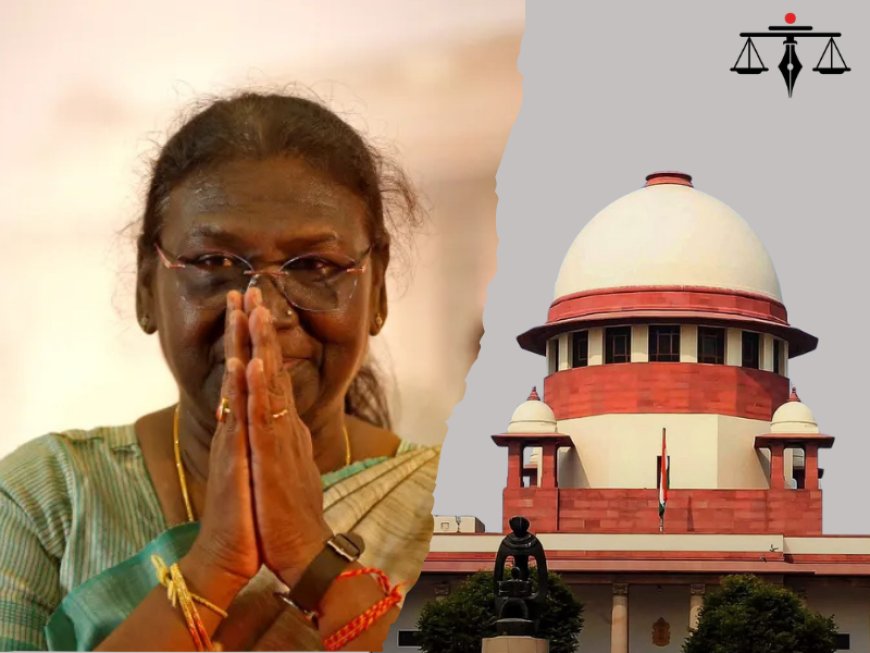Is Supreme Court Bound to Answer President’s 14 Constitutional Questions?
The President has submitted 14 constitutional questions to the Supreme Court for advisory opinion. But is the Court constitutionally required to respond?

Following the Supreme Court's historic verdict on April 8 regarding the dispute between the state of Tamil Nadu and its Governor over pending bills, President Droupadi Murmu has sought the Court's opinion under Article 143 of the Constitution. The Court had previously ruled that Governors must act within a stipulated timeframe on bills reserved for the President. The President has now questioned whether the Court can prescribe such a timeline when the Constitution itself does not specify one.
Key questions the President has posed to the Supreme Court
- What constitutional options does a Governor have when a bill is presented under Article 200?
- Is the Governor constitutionally bound to act on the advice of the Council of Ministers in exercising all available options under Article 200?
- Are the discretionary constitutional powers exercised by the Governor under Article 200 subject to judicial review?Does Article 361 bar judicial review of actions taken by the Governor under Article 200?
- In the absence of a constitutional timeframe, can the court prescribe timelines and procedures for the Governor’s actions under Article 200?
- Are the President’s discretionary powers under Article 201 subject to judicial review?
- Can courts set a timeframe and procedure for the President’s discretion under Article 201 if none is provided in the Constitution?
- Is it mandatory for the President to seek the Supreme Court’s opinion under Article 143 when a bill is reserved or otherwise presented by the Governor?
- Are decisions by the Governor or President under Articles 200 and 201 subject to judicial review before a bill becomes law?
- Can the judiciary examine the content of a bill before it is enacted?
- Can the constitutional powers and orders of the President/Governor be altered in any way under Article 142?
- If a bill passed by the State Assembly has not received the Governor’s assent under Article 200, can it still be considered enforceable law?
- In light of Article 145(3), is it necessary for a Bench of the Supreme Court to first determine whether a constitutional interpretation issue exists and refer it to a minimum five-judge Constitution Bench?
- Are the powers of the Supreme Court under Article 142 limited only to procedural matters, or do they extend to substantive legal and constitutional issues?
- Does the Constitution restrict the Supreme Court’s jurisdiction in resolving disputes between the Centre and the States, except when brought under Article 131?
About Article 143
Article 143 outlines the advisory jurisdiction of the Supreme Court. Only the Supreme Court, being the highest appellate authority in the country, enjoys this privilege. Under Article 143(1), the President can seek the Court's opinion on issues of public importance or specific legal matters that seem necessary or expedient under the Constitution.
Advocate Gyanant Singh explains that the President may refer legal or constitutional questions to the Court, but the Supreme Court is not bound to respond. If it chooses to do so, the Chief Justice forms a Constitution Bench of five judges, and the Attorney General, Solicitor General, and other relevant parties are heard. However, the President is not bound to accept the Court's opinion. Still, under Article 141, the Supreme Court’s decision holds the force of law unless overturned by a larger bench.
Previous Examples of Such References
In the Cauvery water dispute between Tamil Nadu and Karnataka, the President sought the Court’s opinion after the tribunal’s verdict was contested by Karnataka.
In the Ismail Faruqui case, a five-judge Bench considered the President’s query on whether there was a temple beneath the Babri Masjid. The Court declined to offer an opinion, stating it would violate the secular principles of the Constitution.
The current presidential reference, which raises questions about decisions on bills, brings up critical issues — can the President raise questions that were already settled in the Tamil Nadu Governor case? It will be interesting to see how the Supreme Court responds to this latest reference, as it could prove to be a significant constitutional development.







